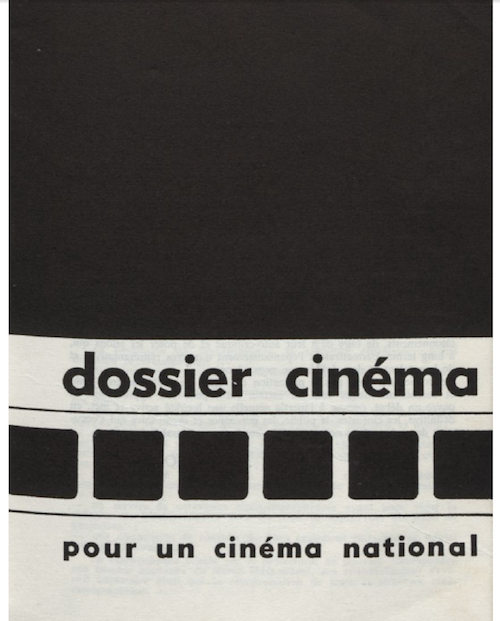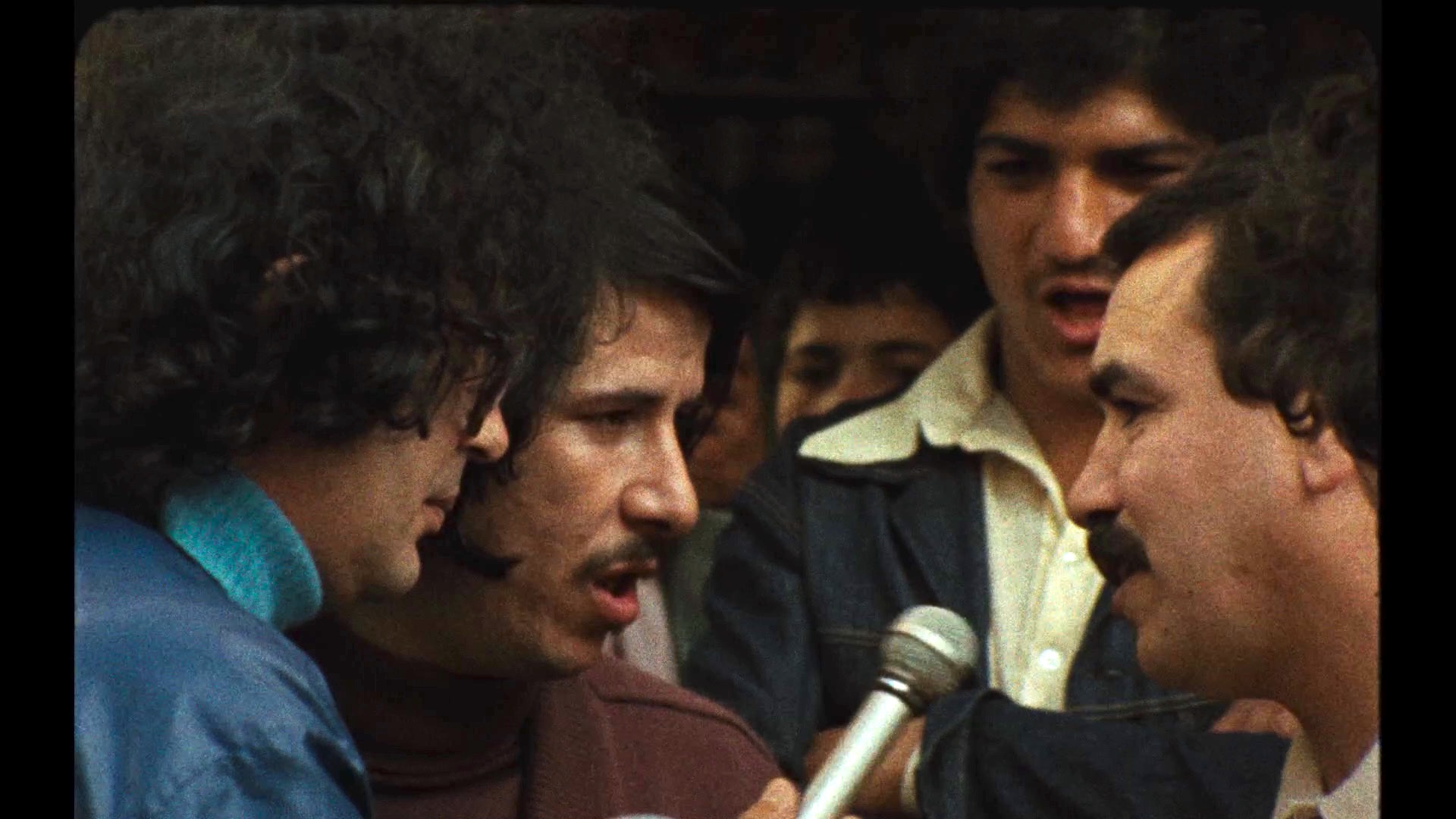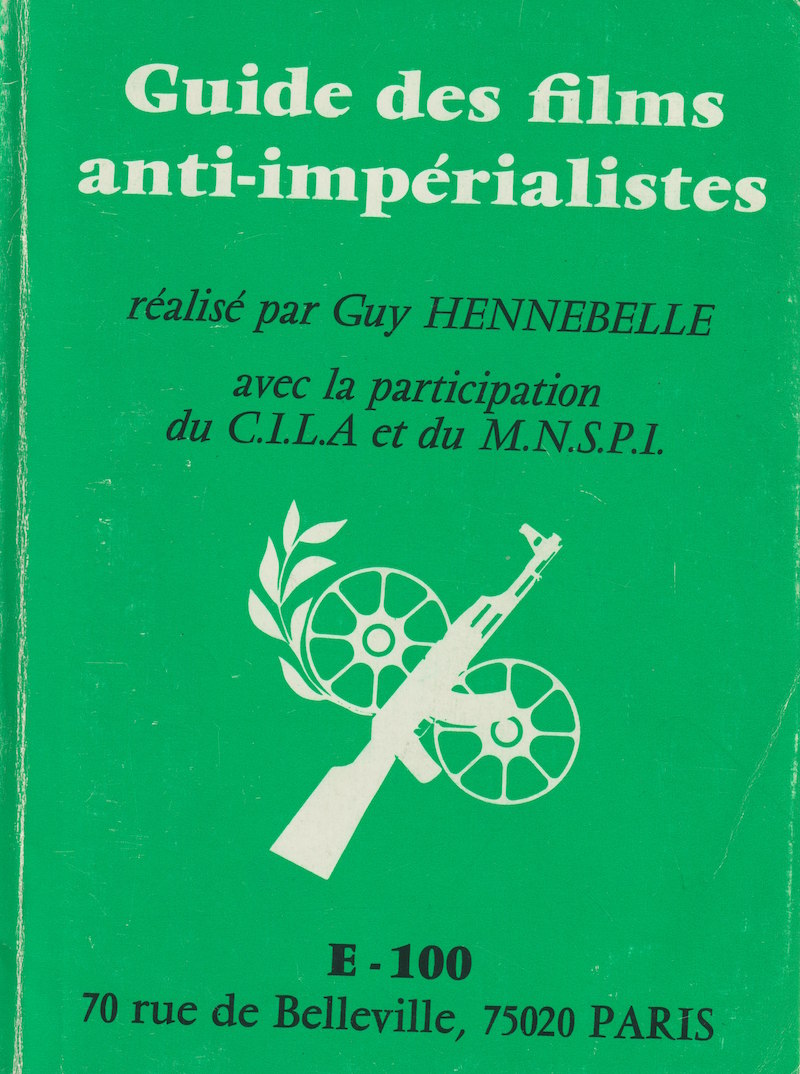
Revue Cinéma 3, Nourredine Saïl, N°1, Bouanani Archives
(5.3)
A NEW KIND OF CRITICISM FOR A NEW KIND OF CINEMA

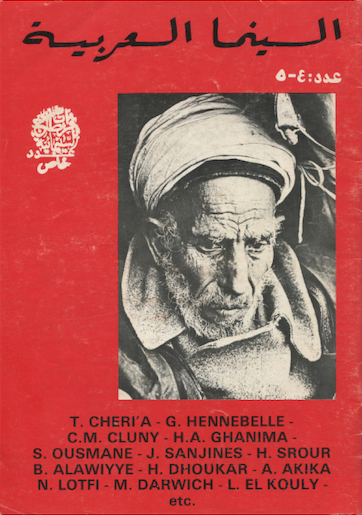
CinémArabe review (Africa, Asia, Latin America)
Edited by Abdou Achouba and Khemais Khayati, issues 4 and 5, Paris, 1976
Critical steering committee: Ali Choubachi, Brahim Berkati, Evane Hanska, Magda Wassef, Tahar Cheriaa, War Abdoul, Ali Akika, Ahmed el Maanouni, Marise Léon, Guy Hennebelle, Elias Aïssi, Aly Choubachi, Martine Encoignard.
Foreign correspondants: Ferid Boughedir (Tunisia), Abdelkrim Gabous (Algeria) Nourredine Saïl (Morocco), Hassan Abu Ghanima (Syria, Palestine, Lebanon)
A bilingual review (French and Arabic) launched in 1976 in France by a group of critics and filmmakers based in France and advocating the emergence of Arab, as well as Asian, African and Latin American cinema. It was mainly edited by Khémais Khayati and Abdou Achouba
Edited by Abdou Achouba and Khemais Khayati, issues 4 and 5, Paris, 1976
Critical steering committee: Ali Choubachi, Brahim Berkati, Evane Hanska, Magda Wassef, Tahar Cheriaa, War Abdoul, Ali Akika, Ahmed el Maanouni, Marise Léon, Guy Hennebelle, Elias Aïssi, Aly Choubachi, Martine Encoignard.
Foreign correspondants: Ferid Boughedir (Tunisia), Abdelkrim Gabous (Algeria) Nourredine Saïl (Morocco), Hassan Abu Ghanima (Syria, Palestine, Lebanon)

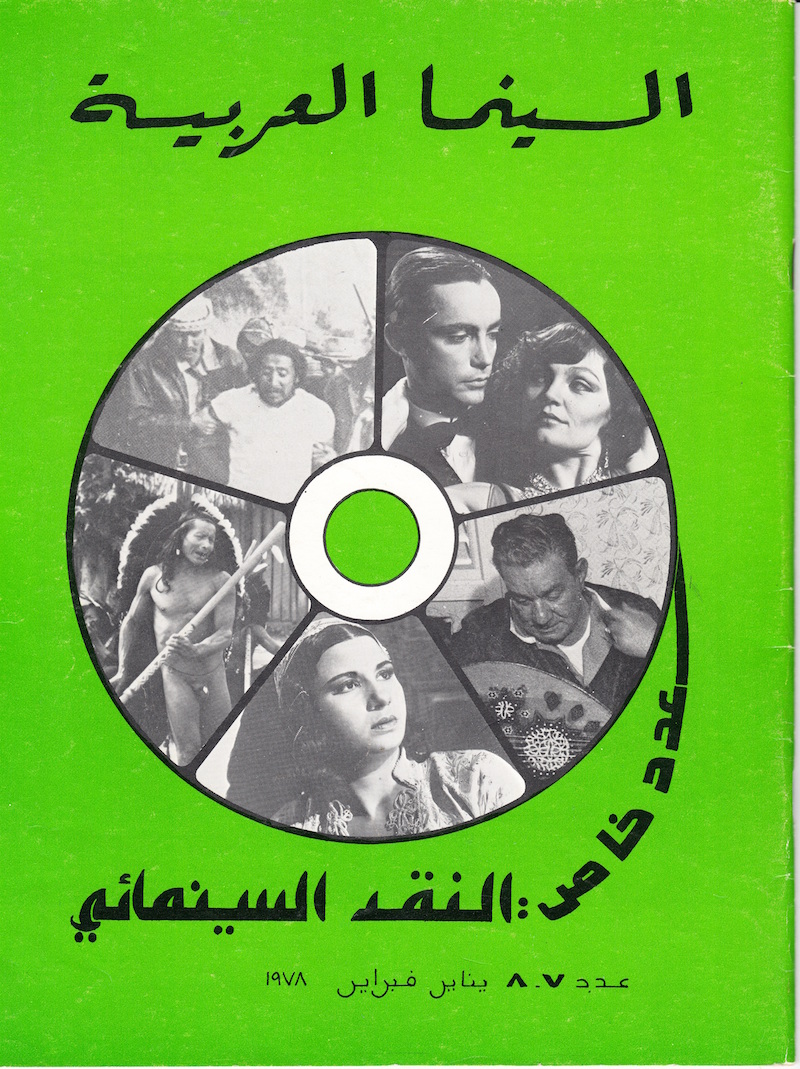
CinémArabe magazine, n°7 and 8, Paris, 1978
Issues 7 and 8 included a special feature (which was intended to take the form of a symposium) called “Une nouvelle Critique de cinéma pour un Cinéma nouveau“ [A new kind of criticism for a new kind of cinema]:
“ We have been clear about our position, with the aim of shattering established ideas and creating a dialectic of union-critic-filmmaker so that a new kind of Cinema and a new kind of Criticism do not remain pipe dreams and so we can all 1. Resist the pressures and repression of reactionary regimes; 2. Support the production and distribution of progressive films from our countries and all countries, within our countries.”
CinémArabe steering committee
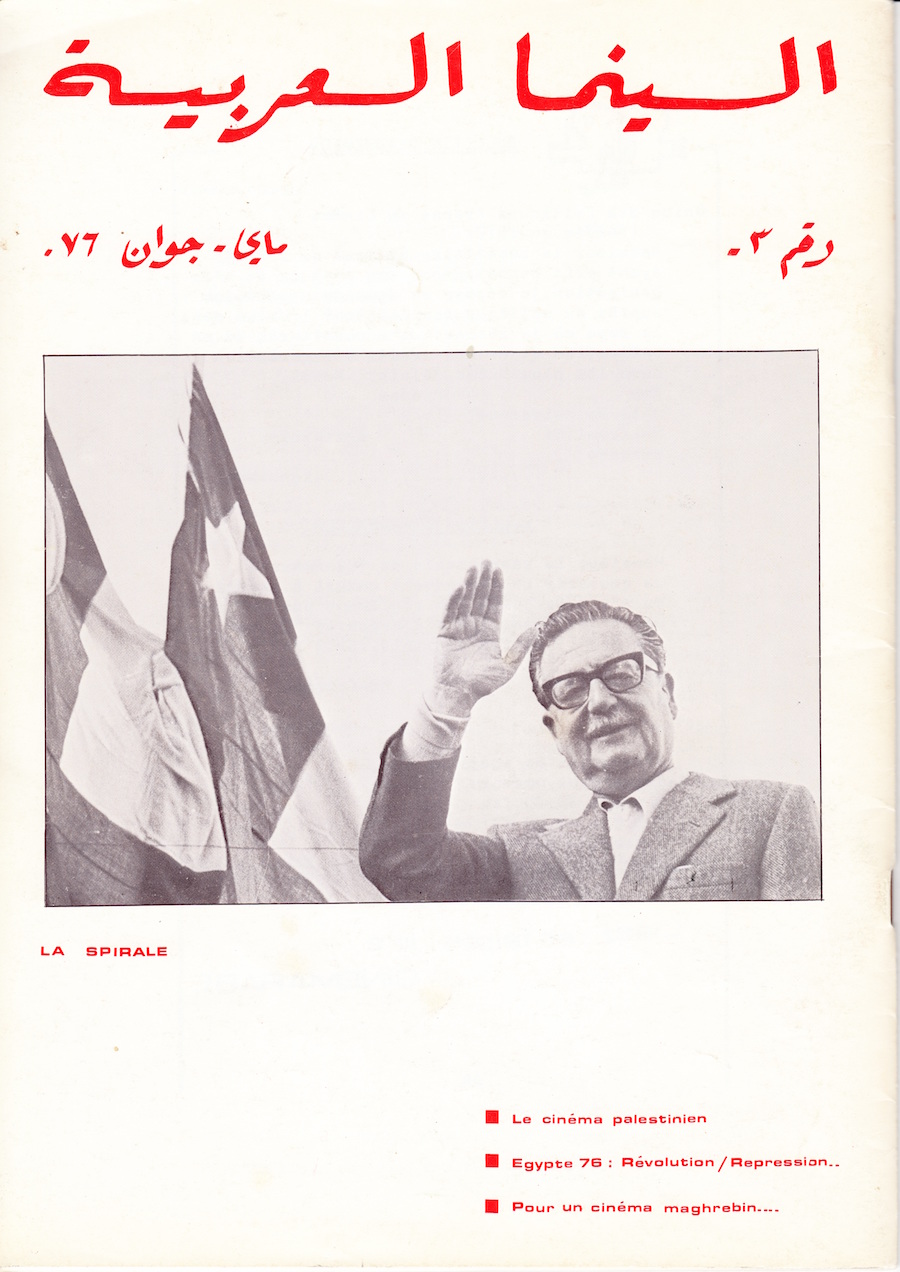
CinémArabe review, issue n°3, Paris, 1976
The issues of CinémArabe can be consulted here in their entirety.
︎


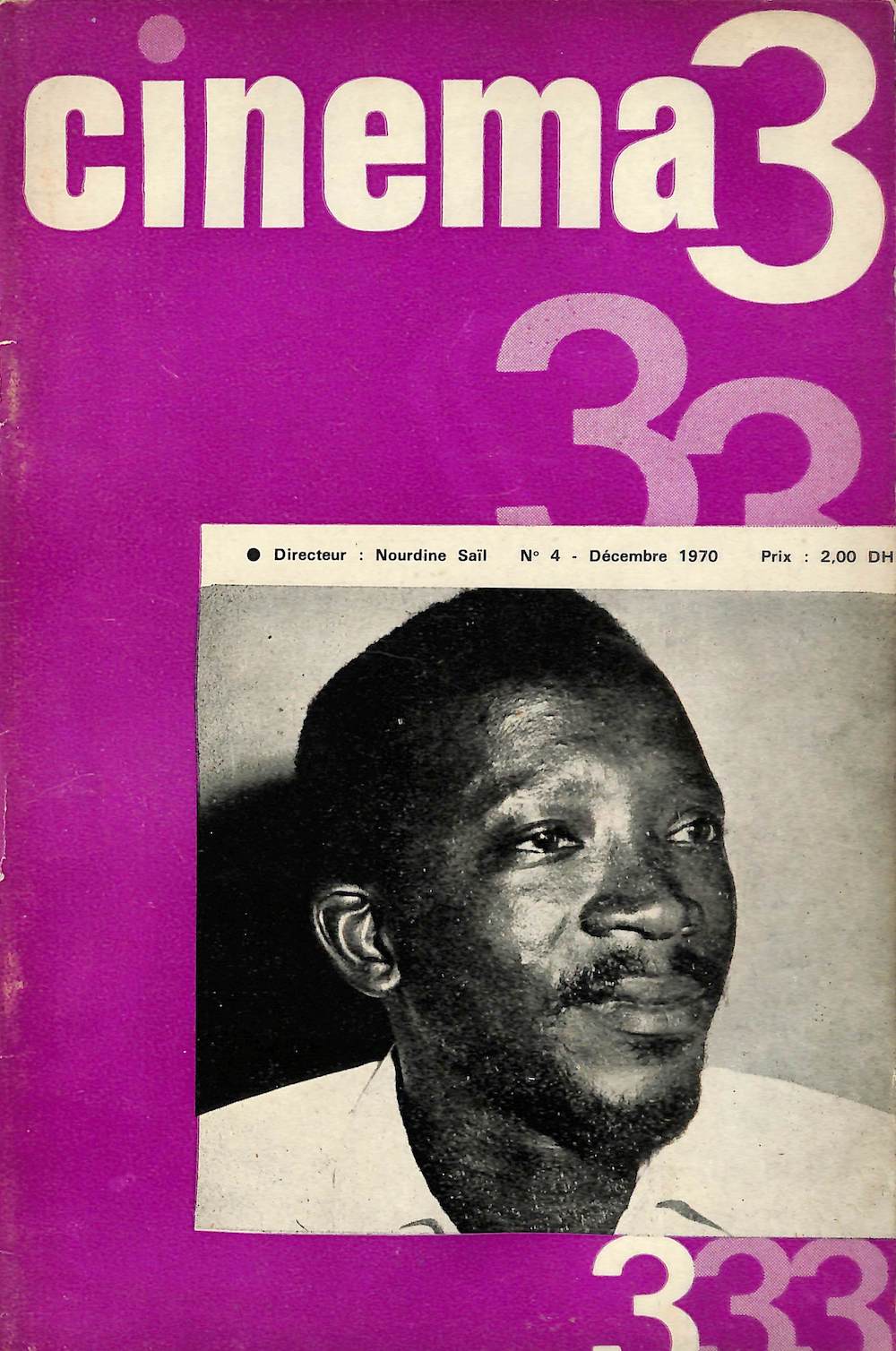




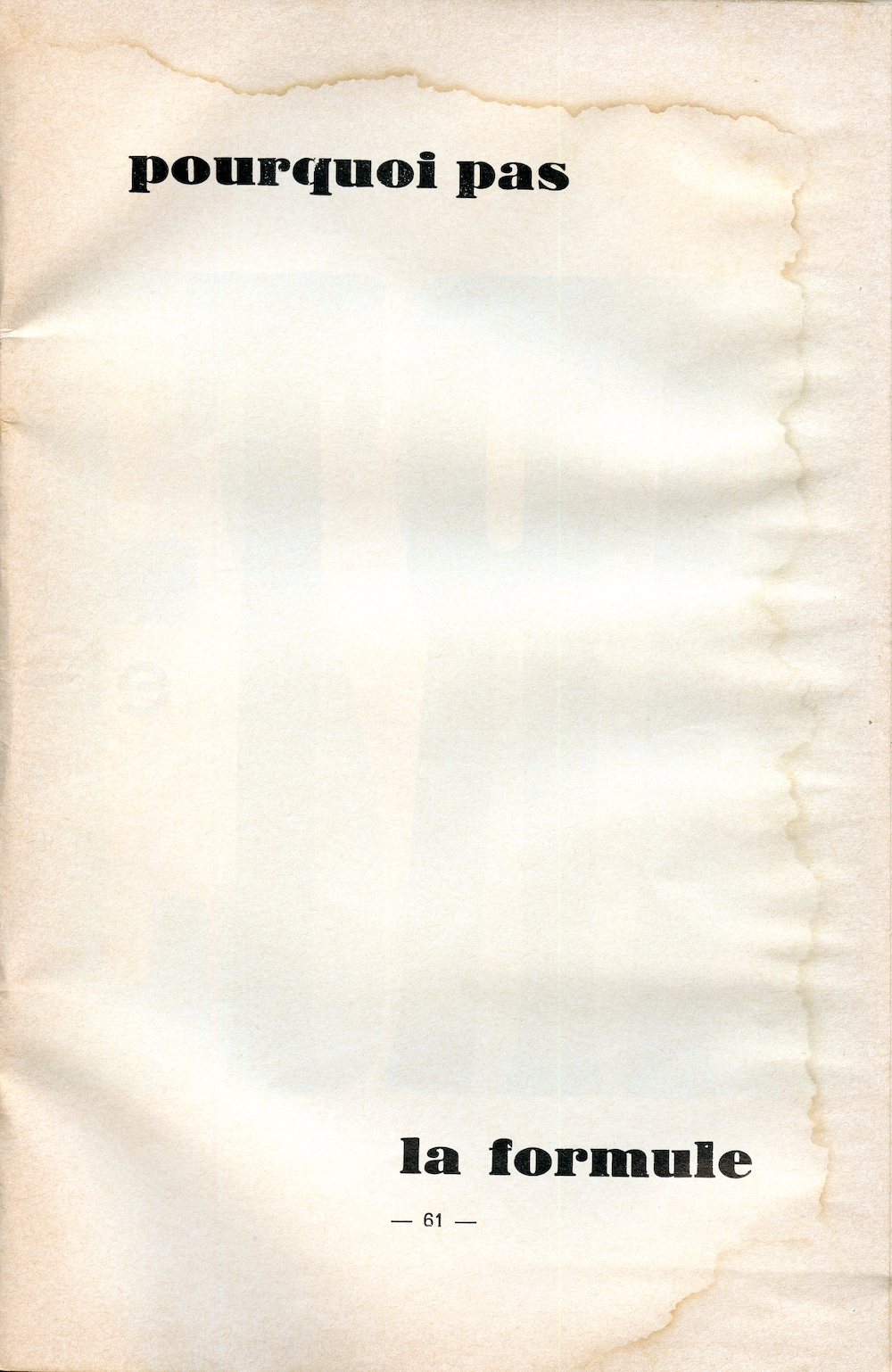



︎
Cinéma 3 reviews, ed. Nourredine Sail, Casablanca, 1970, Bouanani archives
Editorial board: Abdellah Stouky, L’Hassan Benaddi, Mustapha Ouadrassi, Nourredine Sail
Editorial secretary: Mustapha Ouadrassi
Layout: Margarett Scally
Foreign contributors: Guy Hennebelle (France), Abdou Kaisser (Tunisia), Antonio Rosado (Spain)
“Cinema has no assigned heir, so why not us?”
Editorial, Cinéma 3 review, issue n°1
The Cinéma 3 review was launched in 1970 in Morocco by the film critic Nourredine Sail, founder of the National Federation of Cine-Clubs. He was also a philosopher, a scriptwriter, and later director-general of the television channel 2M, director-general of the Moroccan Centre for Cinematography, and president of the Khourigba African Film Festival.
The review was published in French. Its title was a reference to the manifesto “Toward a Third Cinema” by the Argentines Solanas and Getino, which called for a cinema of social intervention and decolonisation. There was also an attempt by a collective of filmmakers in Morocco (Mohamed Sekkat, Mohamed Abderrahmane Tazi, Hamid Benani and Ahmed Bouanani) to group together as a cooperative under the name “Sigma 3”. The group supported the production of Hamid Bennani’s Wechma [Traces, 1970].
In his editorial, Nourredine Sail writes of “cultural alienation” and in particular the role of cinema in the ongoing repressive colonial system. The launch of the Cinéma 3 review accompanied the emergence of a new kind of cinema, hence its need to engage in a “process of theoretical (practical?) demystification and reinvention of cinematographic language.”
The review offers to contribute to the emergence of a Third World cinema.
The “Cinema According to…” section offers an opinion piece, encouraging readers to “define” or “redefine” what cinema means to them. For example, Ousmane Sembene states “I am interested in exposing the problems faced by my people”, whilst the Algerian filmmaker Lakhdar Amine, speaking of his film Le Vent des Aurès, writes: “I wanted to promote another type of Arab cinema.” The review also included theoretical research (such as Hamid Bennani’s work on Bunuel), reports on festivals (Carthage, Leipzig, etc.), reviews of cinema-focused publications (Dialogues Algérie-Cinéma, Petite Histoire du cinéma algérien by Younès Dadci), interviews and articles reflecting on cinema and critical thought.
The review was stopped after the fourth issue due to financial and also political difficulties, following the confiscation of the final issue.
The issues of Cinéma 3 can be consulted here in their entirety.
Credits: Bouanani Archives, Cinima 3. With thanks to Nadia Larguet.
︎DIGITAL COLLECTION :
N°1
N°2
N°3
N°4
Cinéma 3 reviews, ed. Nourredine Sail, Casablanca, 1970, Bouanani archives
Editorial board: Abdellah Stouky, L’Hassan Benaddi, Mustapha Ouadrassi, Nourredine Sail
Editorial secretary: Mustapha Ouadrassi
Layout: Margarett Scally
Foreign contributors: Guy Hennebelle (France), Abdou Kaisser (Tunisia), Antonio Rosado (Spain)
“Cinema has no assigned heir, so why not us?”
Editorial, Cinéma 3 review, issue n°1
The Cinéma 3 review was launched in 1970 in Morocco by the film critic Nourredine Sail, founder of the National Federation of Cine-Clubs. He was also a philosopher, a scriptwriter, and later director-general of the television channel 2M, director-general of the Moroccan Centre for Cinematography, and president of the Khourigba African Film Festival.
The review was published in French. Its title was a reference to the manifesto “Toward a Third Cinema” by the Argentines Solanas and Getino, which called for a cinema of social intervention and decolonisation. There was also an attempt by a collective of filmmakers in Morocco (Mohamed Sekkat, Mohamed Abderrahmane Tazi, Hamid Benani and Ahmed Bouanani) to group together as a cooperative under the name “Sigma 3”. The group supported the production of Hamid Bennani’s Wechma [Traces, 1970].
In his editorial, Nourredine Sail writes of “cultural alienation” and in particular the role of cinema in the ongoing repressive colonial system. The launch of the Cinéma 3 review accompanied the emergence of a new kind of cinema, hence its need to engage in a “process of theoretical (practical?) demystification and reinvention of cinematographic language.”
The review offers to contribute to the emergence of a Third World cinema.
The “Cinema According to…” section offers an opinion piece, encouraging readers to “define” or “redefine” what cinema means to them. For example, Ousmane Sembene states “I am interested in exposing the problems faced by my people”, whilst the Algerian filmmaker Lakhdar Amine, speaking of his film Le Vent des Aurès, writes: “I wanted to promote another type of Arab cinema.” The review also included theoretical research (such as Hamid Bennani’s work on Bunuel), reports on festivals (Carthage, Leipzig, etc.), reviews of cinema-focused publications (Dialogues Algérie-Cinéma, Petite Histoire du cinéma algérien by Younès Dadci), interviews and articles reflecting on cinema and critical thought.
The review was stopped after the fourth issue due to financial and also political difficulties, following the confiscation of the final issue.
The issues of Cinéma 3 can be consulted here in their entirety.
Credits: Bouanani Archives, Cinima 3. With thanks to Nadia Larguet.
︎DIGITAL COLLECTION :
N°1
N°2
N°3
N°4
︎
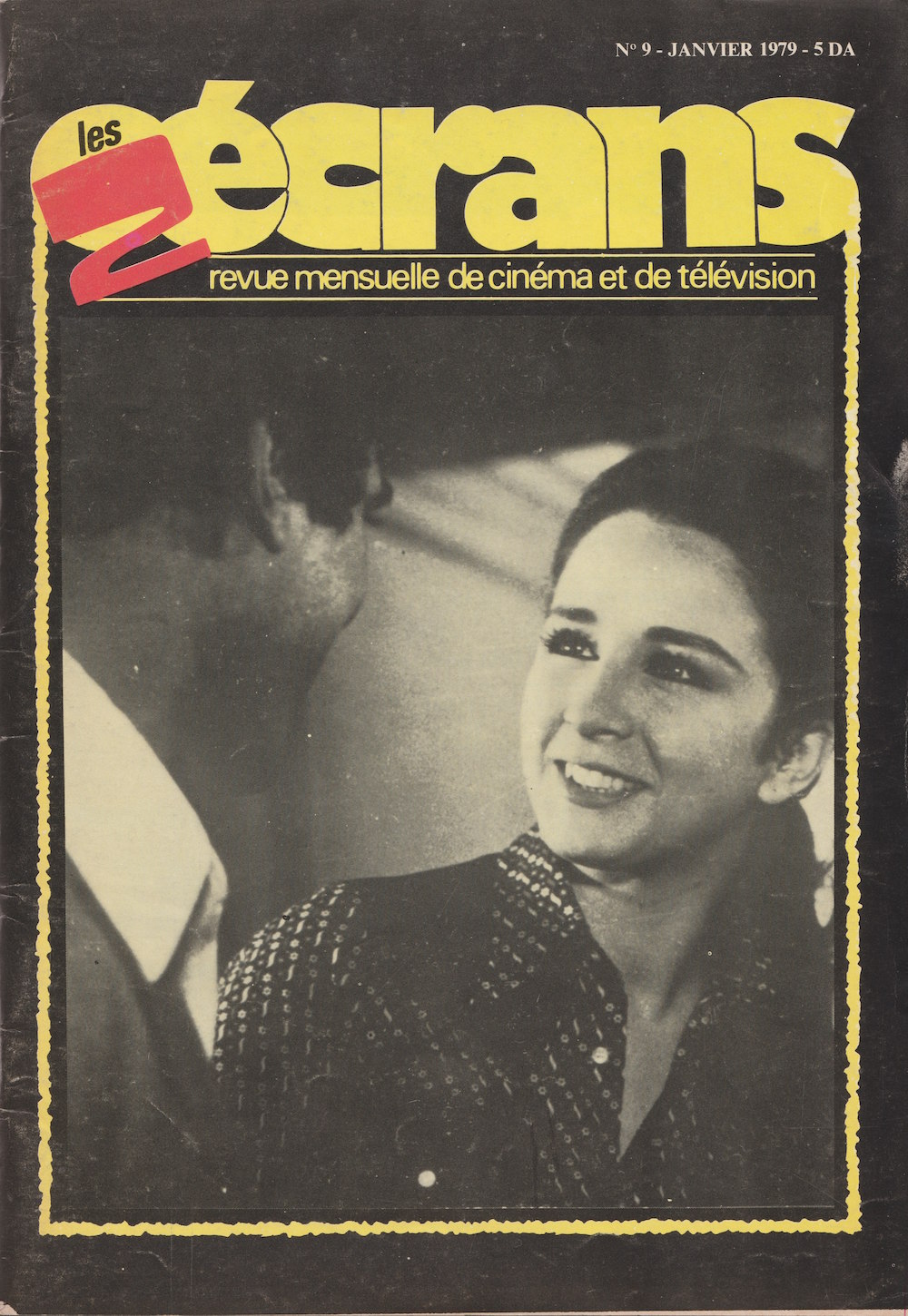


Les Deux Ecrans [The Two Screens] review, issue n°9, RTA, Algiers, 1979, personal archives
Publication director: Abderrahmane Laghouati
Editor-in-chief: Abdou B.
Comité de Rédaction : Mouny Berrah, AzzedineMabrouki, Ahmed Bedjaoui, Merzak Meneceur, Reda Bensmaia, Kamel M. Boudjemline, Farouk Beloufa, Yazid Khodja, Boudjemaa Kareche, Mireille Djaider, Djamel Eddine Merdaci, Rekaia Amara, Hachemi Cherif, Benhedouga A.
Editorial committee: Mouny Berrah, AzzedineMabrouki, Ahmed Bedjaoui, Merzak Meneceur, Reda Bensmaia, Kamel M. Boudjemline, Farouk Beloufa, Yazid Khodja, Boudjemaa Kareche, Mireille Djaider, Djamel Eddine Merdaci, Rekaia Amara, Hachemi Cherif, Benhedouga A.
︎

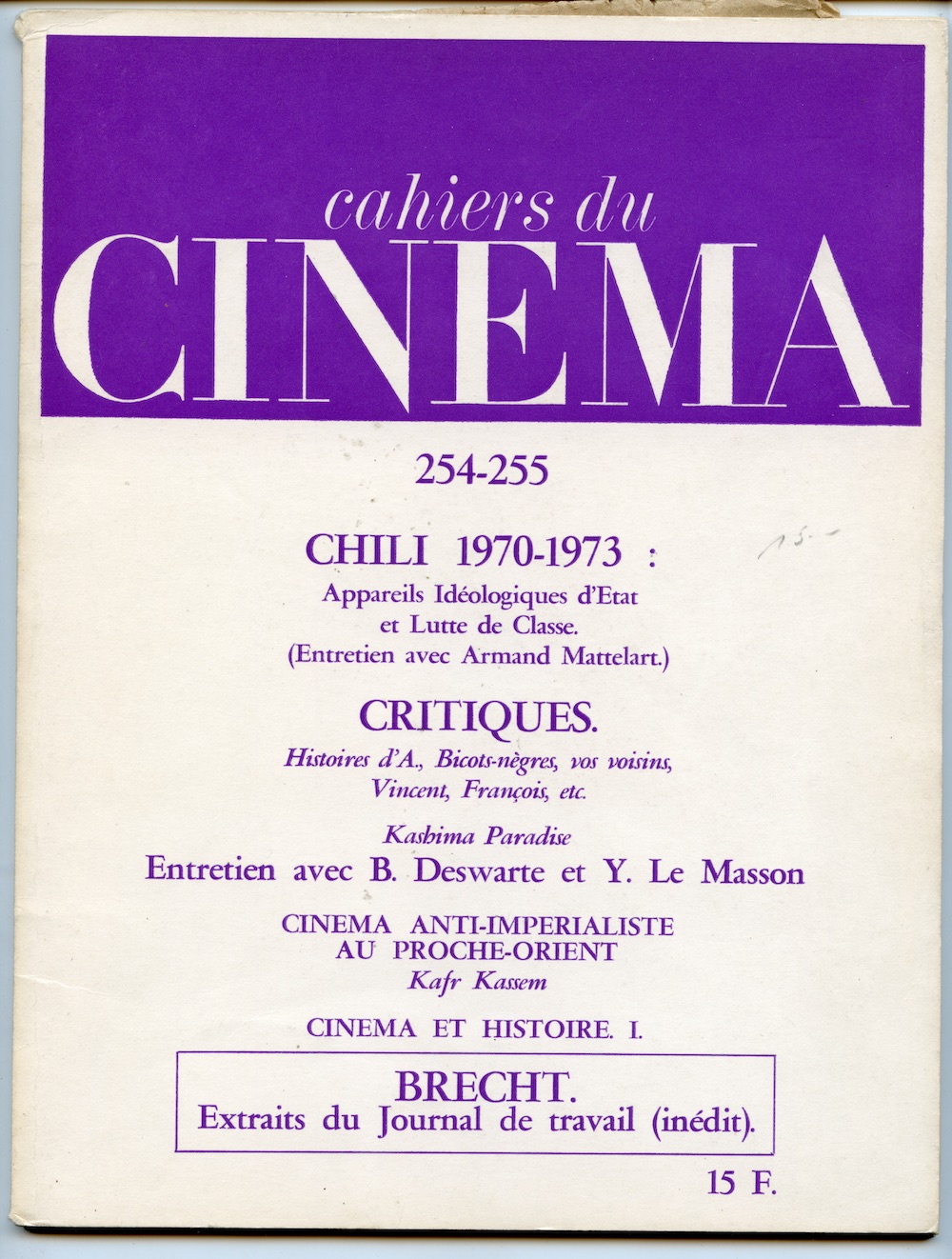
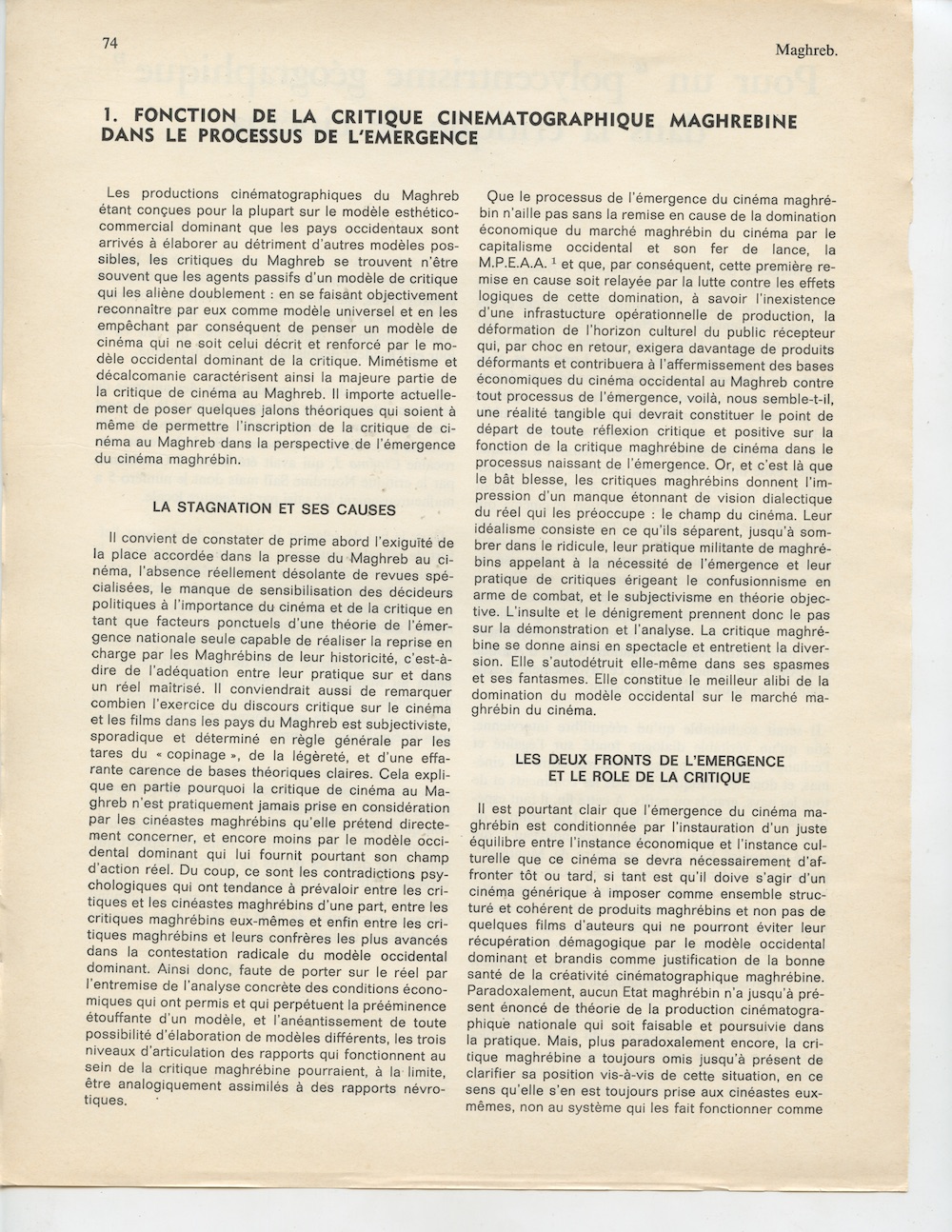

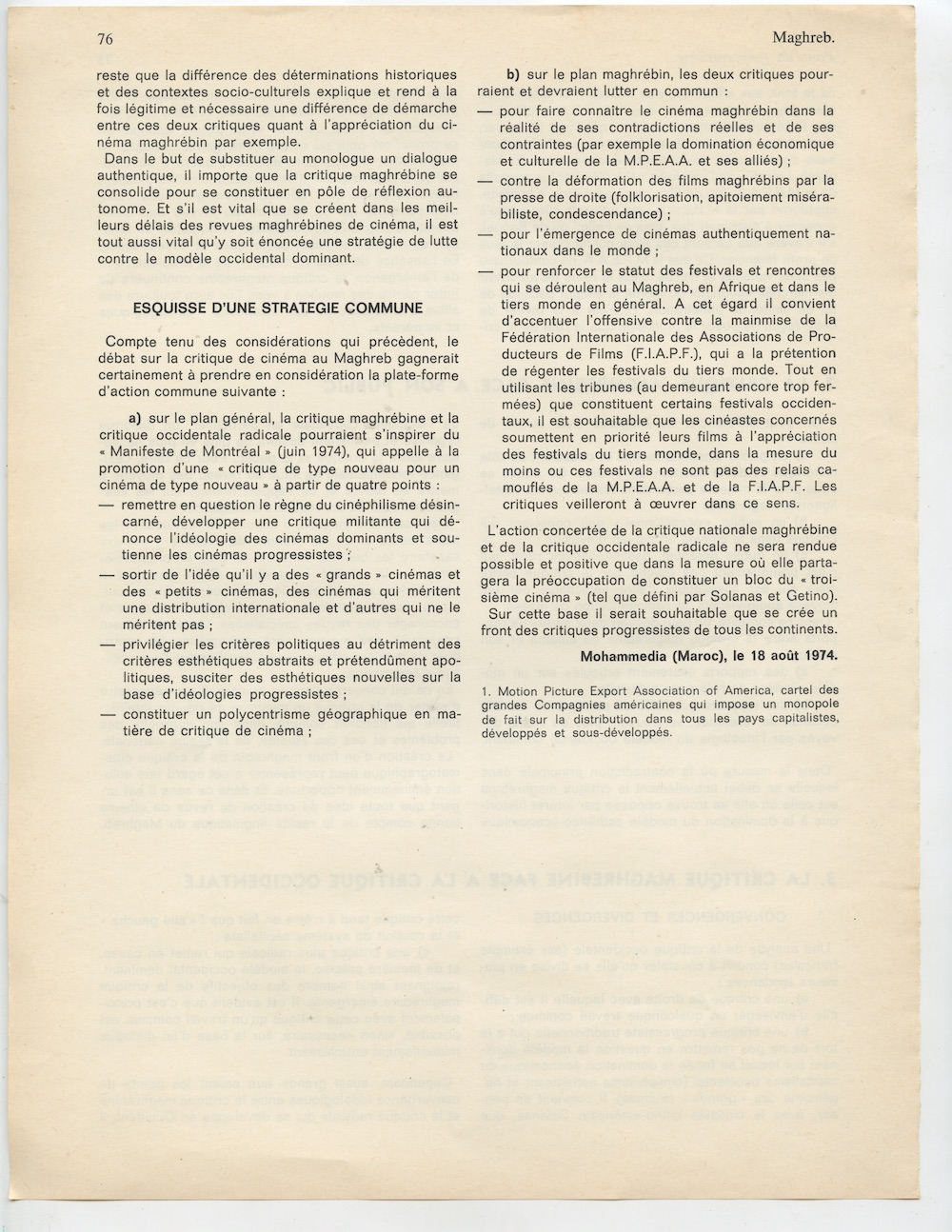
Les Cahiers du Cinéma N° 254-255, 1974
FOR A “GEOGRAPHIC POLYCENTRISM” IN CINEMA CRITICISM by Monique Martineau
“The emergence of the zone of turmoil (Asia, Africa, and Latin America) leads us to realise that a certain hegemony of western historians and critics has been established in cinema since its beginnings.”
Text and re-transcription by Monique Martineau Hennebelle of the Inter-Maghreb meetings organised by the Federation of Moroccan Film Clubs (directed at the time by Nourredine Sail) in Mohammedia in 1974, and notably the panel discussion on “Film criticism in the Maghreb”.
She notes in particular the role of the Cine Cubano review in Havana, and the Argentine theorists Solanas and Getino in Buenos Aires and their publication Cine, cultura y descolonización.
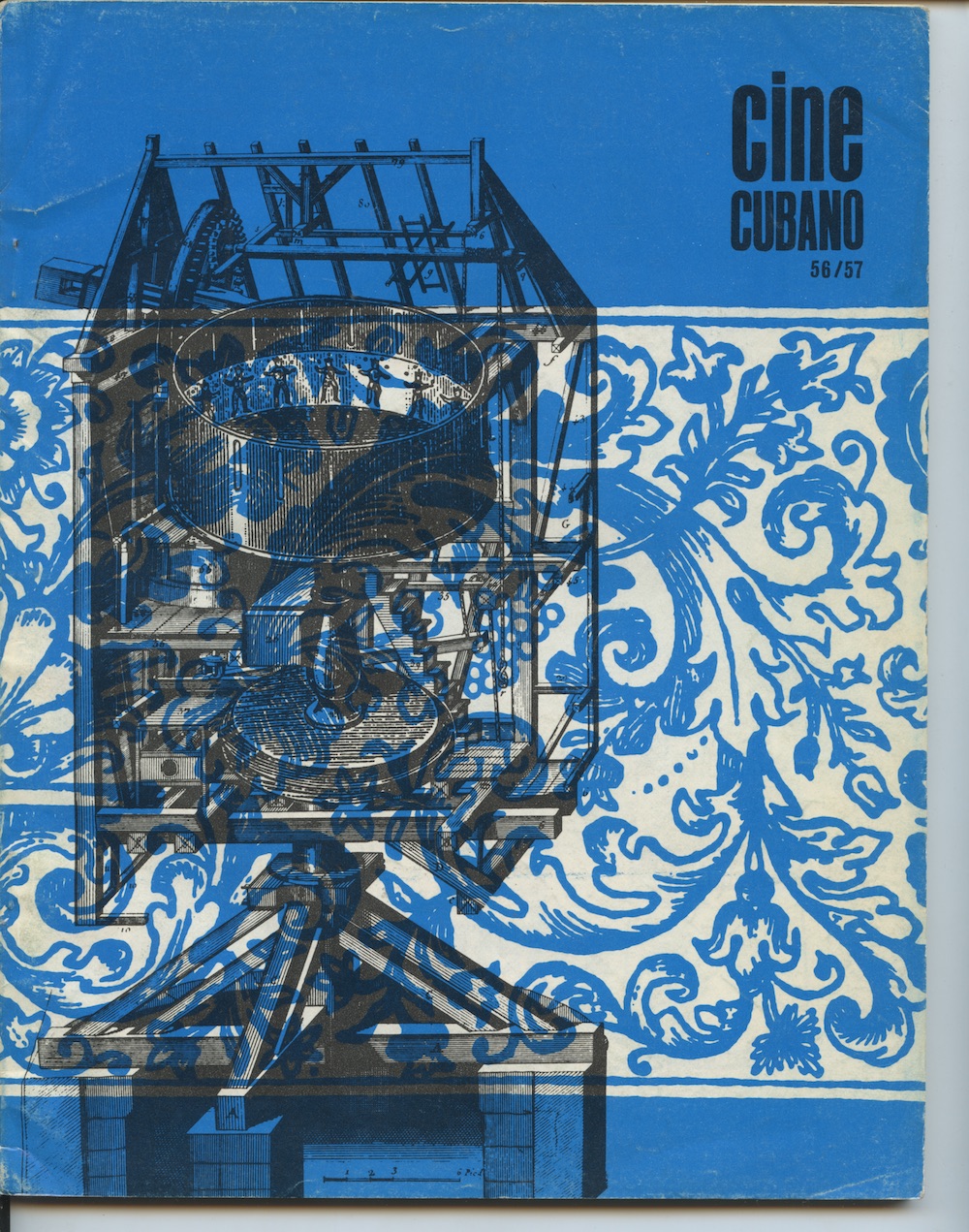
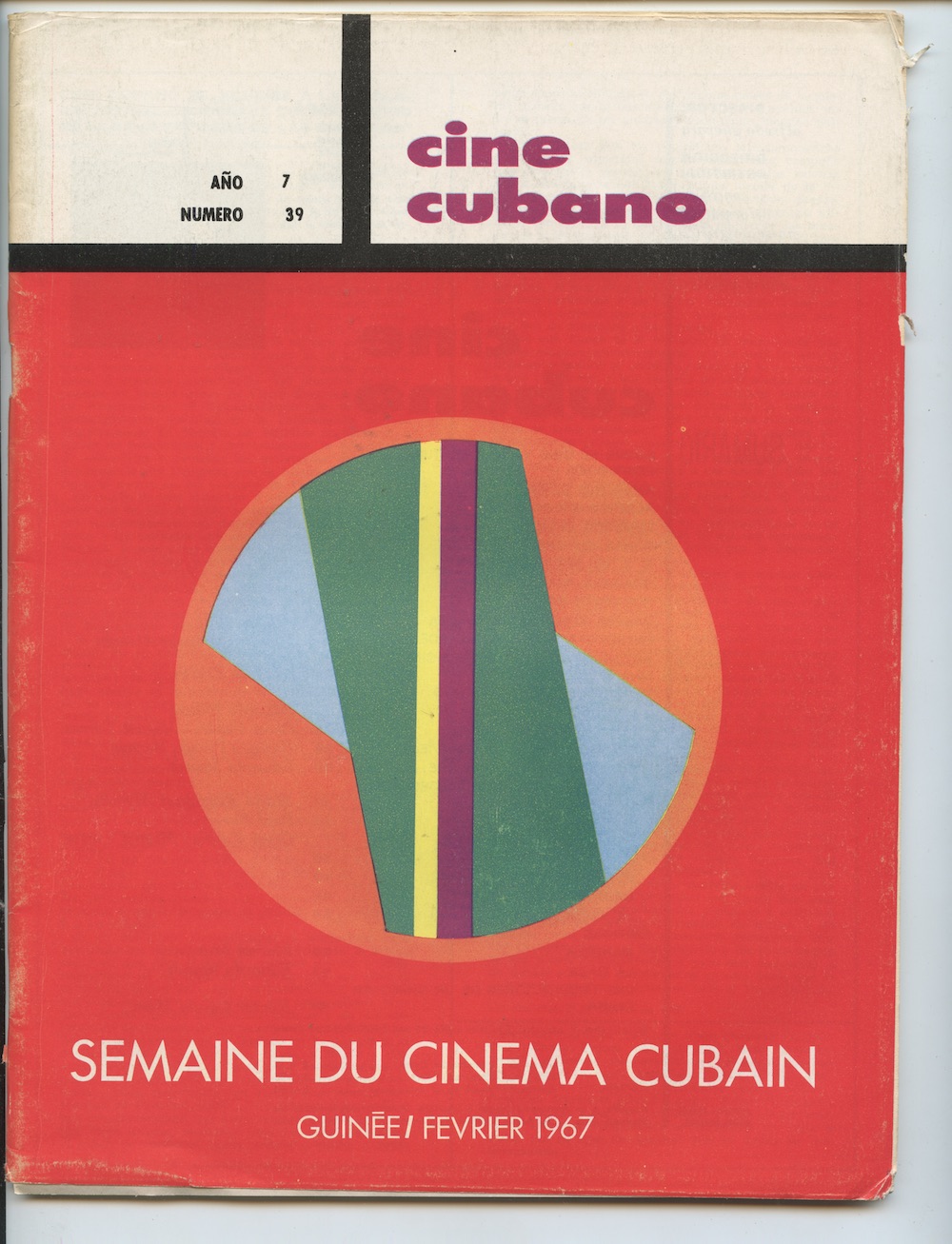
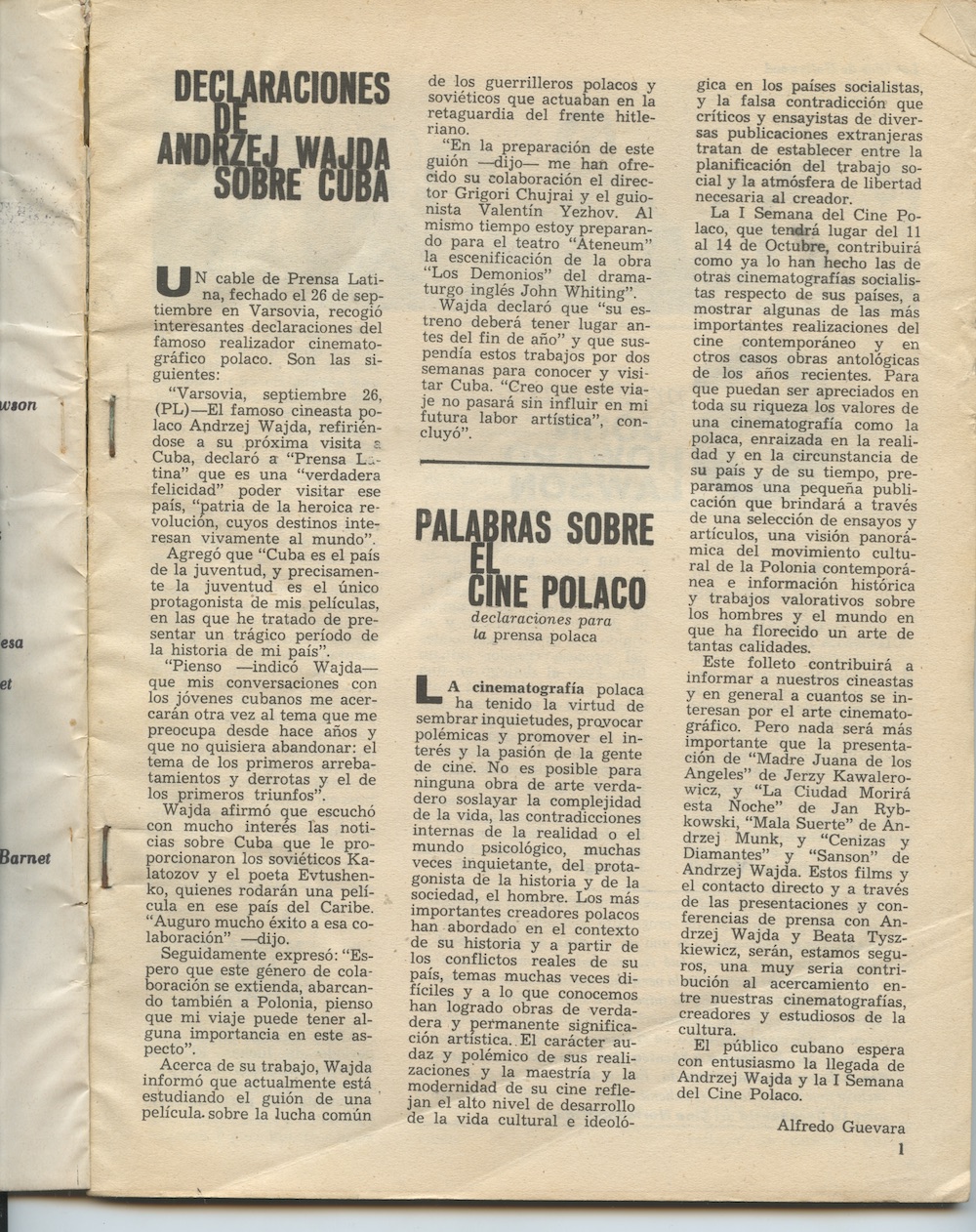
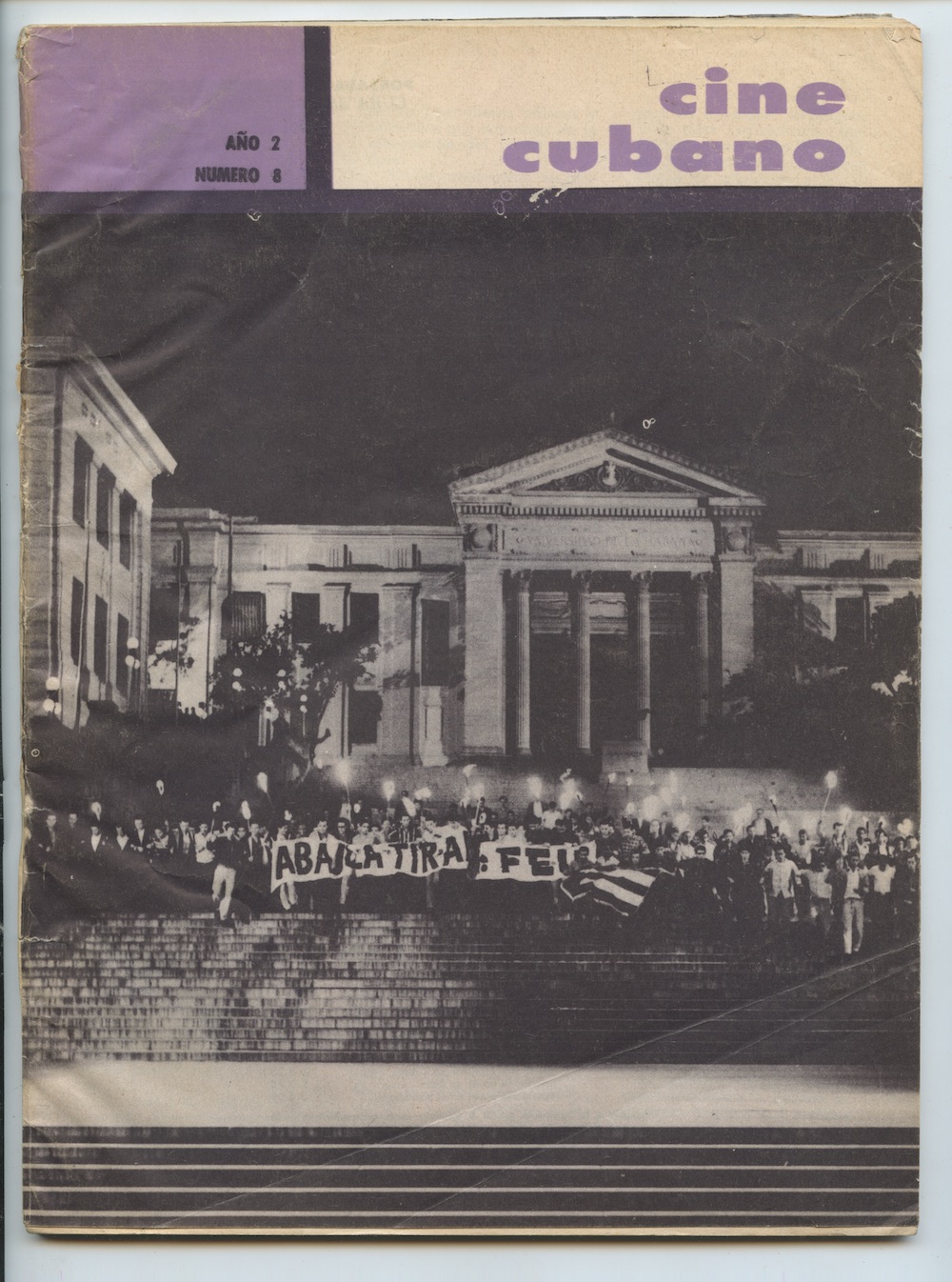
Cine Cubano reviews, n°8, 39, 56/57, 1962, 1967, 1968, personal collection
Statements by the director Andrzej Wajda in Cuba.
Copyright © 2020 / Léa Morin — CINIMA3 / Talitha
